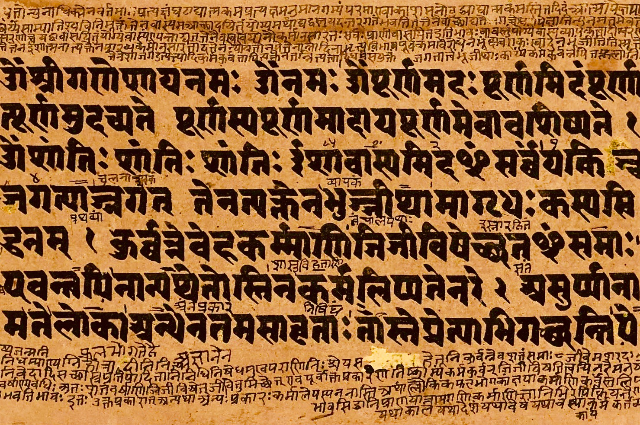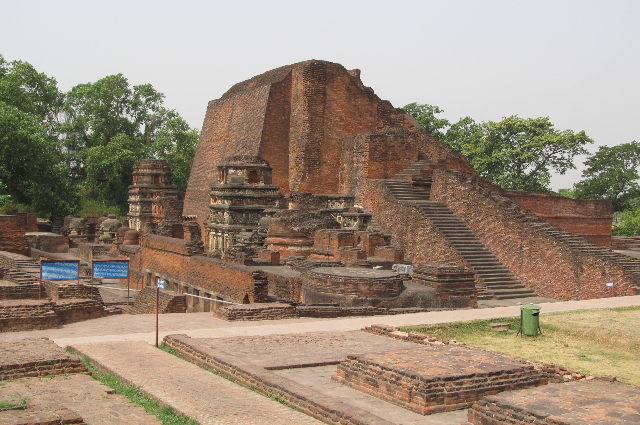
Introduction
‘’A Good Teacher must know how to arouse the interest of the people in the field of study for which he is responsible. He must be a master in the field and be in touch with the latest developments in his subject, he must train himself and be a fellow traveler in the pursuit of knowledge’’Opines Radhakrishnan the master teacher, and I, as a teacher would like to explore the roots of Indian Education, which was manipulated much in a negative perspective by the left-minded historians who are all responsible for the undue hatred upon the Sanskrit language.
India’s Pride
This heritages’ nation which is carried on till date, at least 8,000 years ago and Sanskrit is it’s pride which dates back at least 5,000 years, the world’s oldest language and fell out of common usage around 600 B.C.E. is now a liturgical language – the holy language found in the scriptures of Hinduism, Buddhism, and Jainism. Sanskrit is rich in vocabulary that there are 70 words for water and 100 for elephant. Only Tamil parallels with Sanskrit in terms of ethnicity, richness in literature, and classic elements of universalism besides being the oldest living language of the world. Though India was a museum of languages Sanskrit had been a link language of this continent once, spanning from Mesopotamia to Punjab and the Gangetic plains.
Historical evidence of literature and Archaeological findings fix the origin of Indian history along with Sanskrit to 650 B.C. Sanskrit finds its position as the world’s oldest language and the Rig Veda, a collection of Vedic hymns in Sanskrit belongs to the 2nd millennium B.C.
Sanskrit forms the base of many European languages and is still one of India’s most revered languages and living languages for worshippers of Hinduism through ages, in their old holy scriptures.
Rig Vedas: The four Vedas Rig, Yajur, Sama, and Atharva serve as touching stones of India’s great tradition yet the Rig Veda possess historical importance as it represents the social life of the age, economic conditions and politics besides the life style in general.
Negative Perspective upon Sanskrit
Much of the contradiction found in the Brahma Suktha which is reproduced in Manusmrithi claims the Supremacy of the Brahmans leading to the discrimination of the others including women but the truth is inherent in the very scriptures that ‘Divinity resides in every soul and that ‘Creator gets hurt when any of his creation is hurt’
Historians reject the theory of discrimination as part of Indian tradition and they strongly believe that it has been an unfair manipulation during the British regime. The Vedic era had no signs of caste system on the basis of birth and women excelled in education on par with men. Mythri, Kaargi, Supala, and so on were known to be skilled debaters in terms of Vedic knowledge and logic. Sati was not practiced and widows remarried.
Famous Lovers of Sanskrit
- Persian Historian and Scholar Al Beruni had high esteem for the Upanishads in Sanskrit.
- ‘Al Beruni’s India’ is an 834-page book that should be in the hands of every Indian to know how India before foreign invasions was.
- Mugul Invader Shahjahan’s elder brother Tara Shuko was a scholar in Persian and Sanskrit and he achieved fame in History for his translation of The Bhagwat Gita into Persian.
- Dr.B.R. Ambedkar appreciated Sanskrit as a classical language and wished that it shall be the link language for India as a unifying force.
Scholars and Scholarship of Sanskrit
- Kaargi the Vedic debater, Patanjali the Yogi, Chanakya the Political thinker, Paanini the Grammarian, Aryabhata and Varahamihira the Mathematicians cum Astronomers,
- Susrutha and Saraha the physicians, Kalidasa the playwright and poet, Tulasidasa the spiritual
- personality have all contributed to Mother India with their indomitable roles in the fields of knowledge.
- Kings turned poets, king Bhoj and King Bhartruhari excelled in their verses of philosophy and Universality.
The Great Nalanda University

The great Nalanda University founded by Kumara Gupta I in 5TH century was the centre of scholarship and Buddhist studies in the ancient world. The Vedas, Jain philosophy, Logics, Medicine, Astronomy, Astrology, Yoga, Grammar, Architecture, Warfare, and Fine Arts were taught to students from China, Tibet, Mongolia, Korea, Srilanka, Java, and Sumathra among them were the renowned Chinese pilgrims Pahiyan and Yvan Tsang who registered their valuable accounts on India and it’s treasures.
According to the Persian historian Minha Siraj, The Nalanda was ransacked and set to fire by Bakhtiyar Khilji in c.1202, and 9 million priceless books and manuscripts were burnt to ashes, later to be testified by the excavations from 1915 onwards.
It is disheartening that the railway station of the rebuilt Nalanda bears the name of Bakhtiyar Khilji, the destroyer of a heritage. Sanskrit, thus, is not a dead language but assaulted and literally murdered by barbaric invaders.
Treasures of Thought in Sanskrit
Universal thoughts which had their origin in Sanskrit are accessible throughout the world today but it is propagated that ‘Sanskrit is a dead language’. Indian students know much about the
invaders than the ancient glory of the Motherland, colonialism had disrupted the significance of the language as well as the education system through manipulative academic policies.
As quoted by King Bharthruhari literature makes humanity happier for ever and his 3000 versatile verses include the temporariness of life. He wonders the audacity of people in failing to do good deeds despite the fact that they are mere mortals.
‘The whole earth is a family’ (Vasudaiva Kutumbakam)
According to Vithura Niti,
‘A Wise person is he whose endeavours are preceded by a firm commitment, who does not take any long rest before the task is accomplished, who does not waste time and who has control over his or her mind is wise’.
Conclusion
A Native culture destroyed by intruders and the victims ignorant of their predecessors and their glorious past will tend to degrade their own ancestors, this is the context of this paper and it aims to recapture the lost faith in the original thinking of the soil.
. . .
Reference:- The Bhagwat Gita 13.31
- Indian Education by Thiruvalluvar publishers (A Text for B.Ed.)
- Ancient India by Sharma R.S, New Century Book House
- Indian History by Dr.Murugesan N
- Mahabharath, Vithura Niti 1.29
- Wisdom of Indian Philosophy by Dr.Lakshmanan
